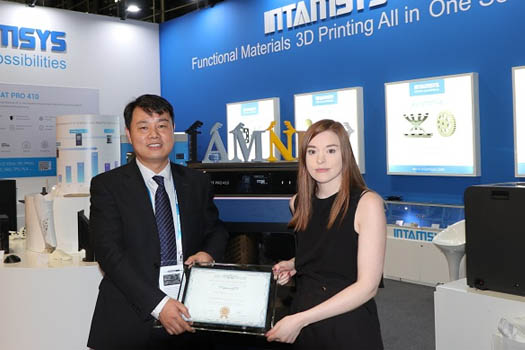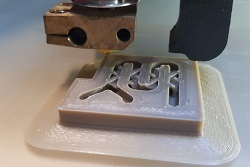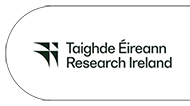Irish researchers win first prize in global 3D printing competition

- I-Form researchers win top prize in international 3D printing competition
- $10k prize for UCD-based research project exploring 3D print applications for the pharma industry
- Prize presented at Formnext conference in Frankfurt
(14th November 2018) - A team of Irish researchers has won first prize in a global competition for industrial 3D printing. The team – comprising UCD-based researchers in I-Form, the SFI Research Centre for Advanced Manufacturing – scooped a prize worth USD10,000 for their project: the design and print of a disposable 3D printed reactor. The polymer reactor can be used to controllably mix chemical precursors used in the manufacture of pharmaceutical agents.
The competition was run by INTAMSYS, a manufacturer of industrial 3D printing systems with its headquarters in Shanghai, and was open to entries from around the globe. The Irish team secured a prize worth $10,000 – consisting of $2,000, an INTAMSYS 3D printer, and several kilos of printing filaments for use with the equipment. The prize was presented to Dr Sarah Brady from the Irish team at the Formnext additive manufacturing conference in Frankfurt.
The competition challenged participants to showcase examples of 3D printing (also known as additive manufacturing) in jigs and fixtures, with the aim of achieving cost and lead-time savings in manufacturing.
The winning entry was a cross-disciplinary collaboration from an engineering team based at University College Dublin: the reactor was 3D printed by I-Form's Dr Sarah Brady, under the supervision of I-Form centre director Prof. Denis Dowling. The reactor was designed by Dr Matthew Harding and Dr Steven Ferguson in UCD Chemical and Bioprocess Engineering, who are evaluating it for use in the intensified chemical synthesis of drugs. I-Form is an SFI Research Centre whose mission is to shape the future of manufacturing through high-impact research into the application of digital technologies to materials processing.
"I'm delighted to see the creativity and expertise of Irish researchers working in advanced manufacturing being recognised in this international competition," said Prof. Dowling, I-Form's Centre Director. "Additive manufacturing (3D printing) opens up a world of possibilities for industrial processes. At I-Form we work closely with industry to advance the low-cost, low-risk design of new products and the manufacture of high-value components with enhanced material performance, alongside the reduction of processing times and enhancing process reliability."
 The INTAMSYS award was for the design and print of a disposable 3D printed reactor for carrying out chemical reactions: As the materials move through the reactor, they mix and react to form the pharmaceutical intermediates or product. The part is known as a continuous flow reactor. This type of reactor is now becoming common within the pharmaceutical manufacturing sector, as they allow product to be produced continually, under more aggressive conditions, with better control over heating, cooling and improved mixing, enabling much faster reactions to be conducted. This can enable dramatic reduction in facility size and cost, with equivalent production rates.
The INTAMSYS award was for the design and print of a disposable 3D printed reactor for carrying out chemical reactions: As the materials move through the reactor, they mix and react to form the pharmaceutical intermediates or product. The part is known as a continuous flow reactor. This type of reactor is now becoming common within the pharmaceutical manufacturing sector, as they allow product to be produced continually, under more aggressive conditions, with better control over heating, cooling and improved mixing, enabling much faster reactions to be conducted. This can enable dramatic reduction in facility size and cost, with equivalent production rates.
One advantage of using 3D printing for the fabrication of flow reactors is design flexibility. In this example, the mixing chamber inside the reactor can be designed specifically to match the characteristics of a given reaction mixture, allowing the optimum reactor to be printed on-demand, at a fraction of the cost of traditional fabrication techniques.
The continuous flow reactor was printed using an Intamsys Funmat HT using PEEK material.
ENDS
Picture above top: Dr Sarah Brady, I-Form researcher, accepting the USD10,000 prize from Charles Han, CEO, INTAMSYS, at the Formnext additive manufacturing conference in Frankfurt.
Picture above right: The winning entry being 3D printed
For further information, please contact:
Sylvia Leatham, Communications & Public Engagement Manager

